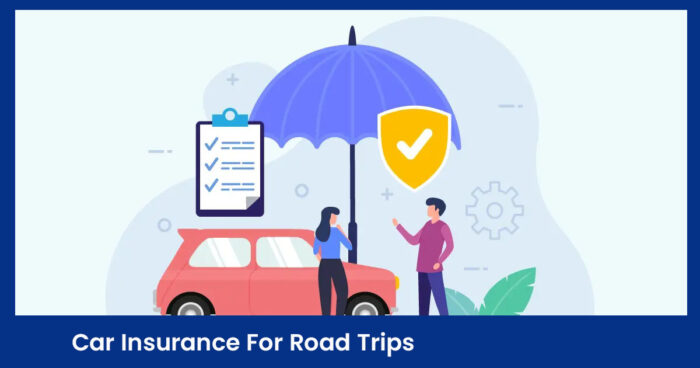Car Insurance For Road Trips – Insurance can protect you from many common road trip setbacks, such as accidents or weather-related damage. Before setting off, it’s helpful to understand what your policy covers in different scenarios.

Having the right car insurance is essential for any road trip, whether you’re driving your own car or renting one. It helps protect you from unexpected issues like accidents or breakdowns.
How Does Car Insurance for Road Trips Work?
This guide breaks down how road trip car insurance works and why it matters. If you already have an auto insurance policy, you may not need a separate one for travel. Most policies continue to provide coverage across all 50 states, since auto insurance usually follows the vehicle not the driver.
It’s also worth checking if your policy includes roadside assistance. This can be a valuable add-on, offering help with towing, flat tires, and even trip interruption coverage. Lastly, if someone else may be driving your car during the trip, ask your provider if your plan includes permissive use coverage.
If You’re Driving Your Own Car
When using your personal vehicle, the coverage you get will depend on the details of your car insurance policy. Here are the key coverage types and what they typically handle:
- Liability insurance: Covers injuries or property damage to others if you’re responsible for an accident. It also helps with legal defense costs. This coverage is required in most states.
- Uninsured/Underinsured motorist coverage (UM): Protects you and your passengers if you’re hit by someone without enough insurance. It’s mandatory in some states, optional in others.
- Collision and comprehensive insurance: Helps cover damage from car accidents, theft, vandalism, weather, animal collisions and more. These are optional coverages but very useful for road trips.
- Personal injury protection (PIP): Pays for medical expenses for you and your passengers, no matter who is at fault. It’s required in certain states and optional in others.
- Medical payments (MedPay): Covers medical costs for you and your passengers, regardless of fault. It’s typically sold in small amounts and may not be available in all states.
- Roadside assistance: Covers help with issues like flat tires, dead batteries, lockouts, or running out of fuel. This can be included in your car insurance or purchased separately.
If You’re Renting a Car but Own a Vehicle
In most cases, your personal car insurance extends to rental cars within the U.S. Your existing liability, collision, and comprehensive coverage may apply. However, it might not cover certain fees. For example, rental companies may charge for lost income while the car is in the shop after an accident. This is known as “loss of use.”
Rental companies usually offer a collision damage waiver (CDW). This reduces or removes your financial responsibility if the rental car is damaged or stolen. It often includes coverage for towing, admin fees, and loss of value. Before purchasing a CDW, check if your current policy or credit card already provides this protection.
If You’re Renting a Car and Don’t Own One
If you don’t have personal car insurance, you’ll likely need to purchase coverage through the rental car company. Common options include:
- Liability insurance
- Collision damage waiver (CDW)
- Personal accident insurance (PAI)
- Roadside assistance
- Personal effects coverage for belongings
These can be pricey, so review your existing insurance or credit card benefits first. You may already have some protection.
Other Sources of Coverage to Consider
- Credit cards: Some cards offer rental car coverage, but usually for collision only. Liability or medical expenses are often excluded.
- Health insurance: If you’re injured in an accident, your health plan will cover medical treatment, though deductibles and copays apply.
- Homeowners or renters insurance: Covers theft or damage to personal belongings, even when outside your home, such as a laptop stolen from your rental car.
- Non-owner car insurance: Useful for frequent renters. This provides liability coverage but not damage to the rental vehicle or medical costs.
- Travel insurance: Some travel plans include rental car coverage. For example, certain plans may pay for rental damage and roadside help, but not liability.
- Umbrella insurance: Adds extra protection if a liability claim exceeds the limits of your auto or home insurance.
Does Car Insurance Cover Out-of-State Travel?
Yes. If you are driving within the United States or Canada, your regular car insurance policy will typically provide full coverage throughout your trip. You don’t need to purchase additional insurance for crossing state lines.
If you’re renting a car, your existing policy should also cover you in other states. Some providers also extend coverage into Canada. It’s a good idea to check with your insurer before crossing the border to confirm.



